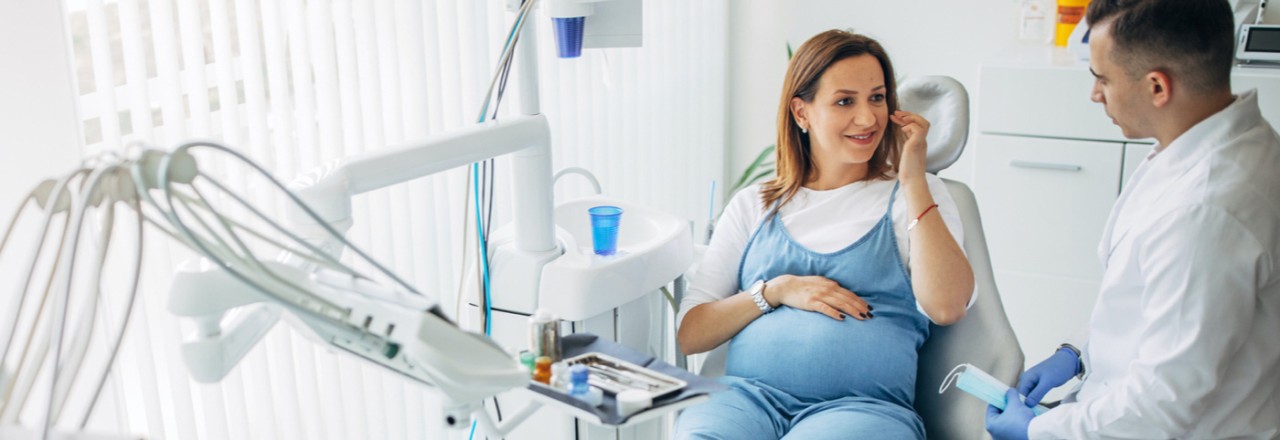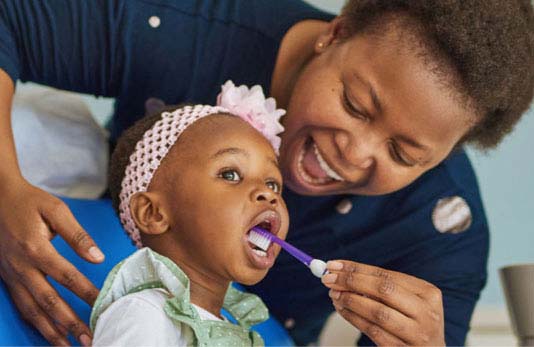Pregnancy and dental health: What you need to know

Expecting a baby? There’s a lot to think about. But don’t forget about your teeth. Being pregnant has major effects on the body, and your mouth is no exception. Here’s what you should know.
When should I see my dentist?
Make an appointment with your dentist as soon as you are pregnant. Let your dentist know how far along you are and if you have any medical conditions or a high-risk pregnancy. Your dentist can help assess your oral health and map out a plan for the rest of your pregnancy.
If you’re planning to become pregnant, it’s a good idea to visit a dentist beforehand to take care of any dental issues that may be affected by your pregnancy.
How does pregnancy affect my oral health?
Being pregnant puts you at higher risk for tooth decay, gum disease (also known as “pregnancy gingivitis”) and oral growths called “pregnancy tumors.” These conditions are treatable, so make an appointment with your dentist.
How can I avoid these conditions?
Brushing and flossing vigilantly can help fight gum disease and tooth decay, but there’s nothing you can do at home to get rid of pregnancy tumors. They usually disappear after birth, or you can ask your dentist to remove them.
How does my oral health affect my baby’s health?
If you have moderate to severe gum disease, you may be at higher risk for delivering a pre-term, low-birth weight baby.
Can I get a dental cleaning while pregnant?
Yes, dental cleanings pose no harm during pregnancy. In fact, they’re a great way to keep your teeth and gums healthy, which is especially important during pregnancy. Some dental plans may cover an additional cleaning for pregnant women. Check if your plan includes this feature.
Are dental x-rays safe during pregnancy?
Dental x-rays are now considered safe during all stages of pregnancy by the American Dental Association. X-rays can be vital in catching major problems that cannot be seen otherwise, like tooth decay, bone loss and infected root canals. Dental x-rays are not believed to cause birth defects, although a 2004 study did find an increase in low-weight birth among women who had dental x-rays while pregnant. If you have any concerns, talk to your dentist, who can help evaluate your case and decide whether x-rays can be postponed.
Is anesthesia safe during pregnancy?
Anesthesia during the first trimester may be linked to early miscarriage. If you need any dental work that requires anesthesia, such as a filling or root canal treatment, talk to your dentist about postponing the procedure until the second trimester of your pregnancy.
Last updated January 10, 2022
Related articles:
The oral health information on this website is intended for educational purposes only. Always consult a licensed dentist or other qualified health care professional for any questions concerning your oral health.


